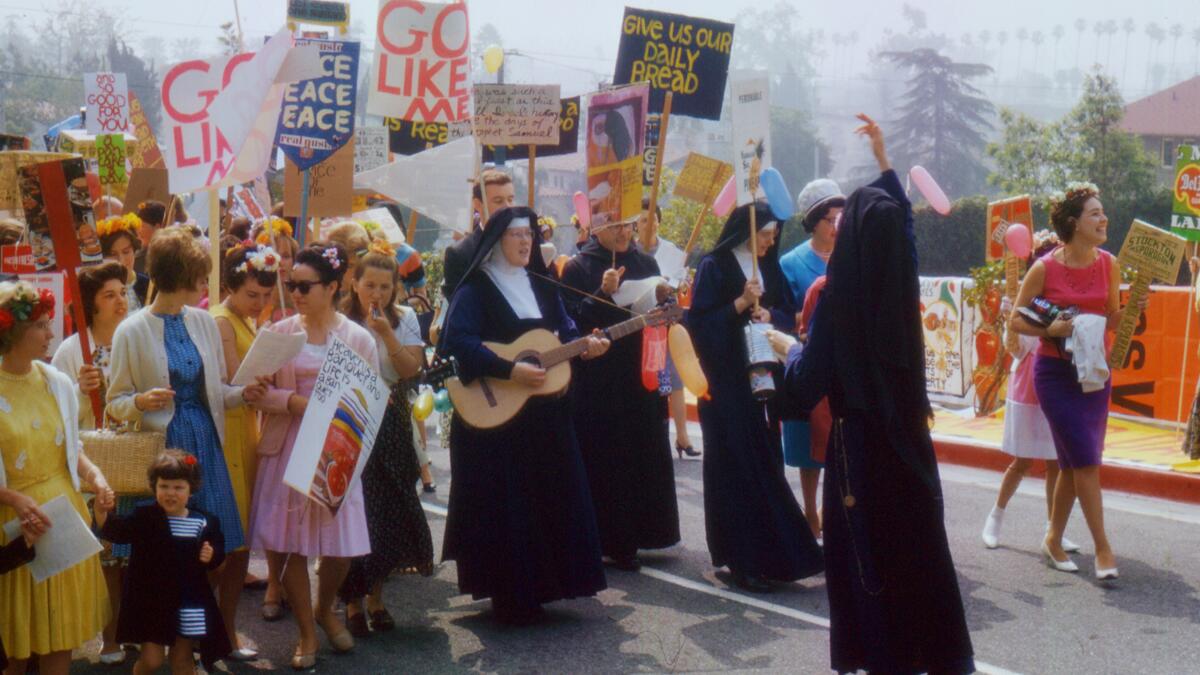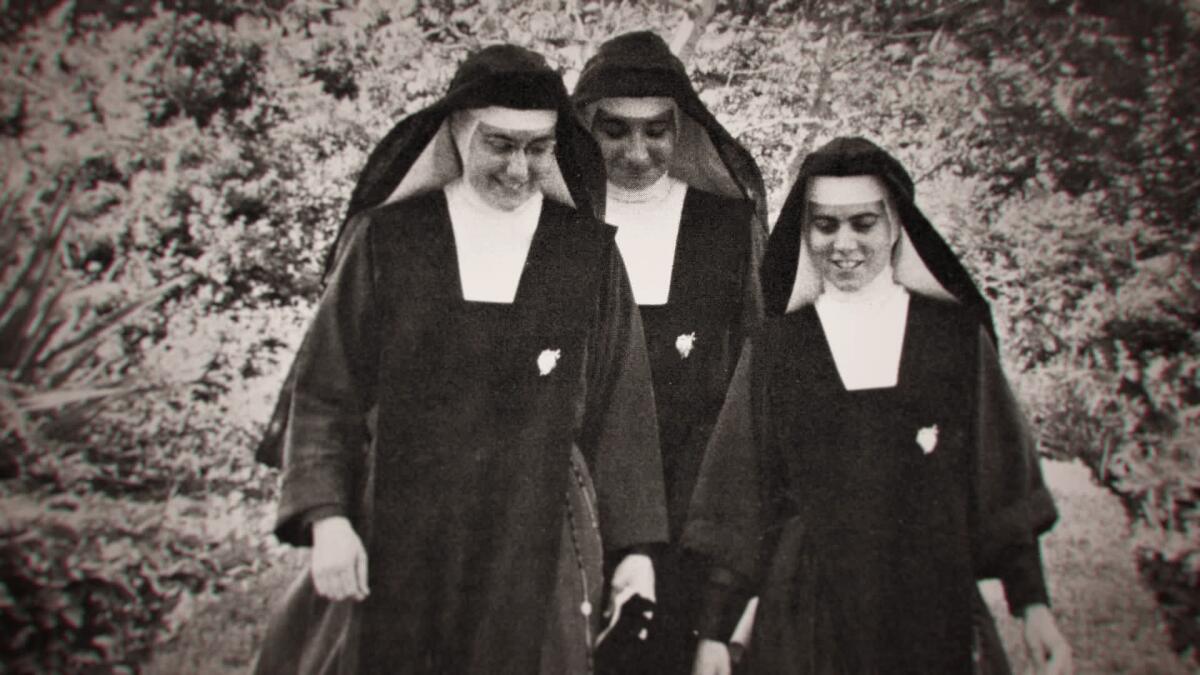Review: Spirited documentary chronicles 1960s L.A. nuns who showed their âRebel Heartsâ

The Times is committed to reviewing theatrical film releases during the COVID-19 pandemic. Because moviegoing carries risks during this time, we remind readers to follow health and safety guidelines as outlined by the Centers for Disease Control and Prevention and local health officials.
Weâre all familiar with calling for action in Hollywood, but the new documentary âRebel Heartsâ isnât about creating a movie set fantasy. Itâs the true story of a group of forward-thinking 1960s Los Angeles nuns who, just down the hill from the Hollywood sign at the Immaculate Heart campus, stood up against an unbending, oppressive Catholic patriarchy and became the kind of heroes for change that all too often go unrecognized when news articles fade and disappear.
Life magazine called them âThe Popeâs Unruly Flockâ in one memorable headline flashing across director Pedro Kosâs buoyant, collage-like telling, which assembles interviews, archival clips, veritĂŠ, art, music cues and animation into whatever the opposite of a dry educational film is. That doesnât always make for the most durable of tones, but in its well-intended enthusiasm is a story of female independence made necessarily urgent.
Background helps fill in the perspectives that take center stage. In interviews conducted over 20 years â Kos picked up the reins from producer-writer Shawnee Isaac-Smith, who started the project and conducted the original interviews â we hear reform leaders Anita Caspary, Helen Kelley and Pat Reif, among others, explain why bright, self-determined young women would join a religious order: In the postwar years, it was a path to education without the pressure to marry. There were rules, though, about speaking, praying, eating and cleaning, which pointed to a life built around obedience, not empowerment.

For many sisters, the potential for meaningful work lay most promisingly in Los Angelesâ rapidly expanding Catholic school system under Cardinal James Francis McIntyre, albeit as underpaid, underexperienced teachers in overcrowded classrooms. But with the push for modernization that upended the Catholic Church, and growing unrest sparking a national dialogue about change, the socially conscious educators of Immaculate Heart sought to lead by example, and through experimentation. For these women, Mary â bringing Godâs son to heal a troubled world â was the perfect symbol of needed revolution.
With a spiritual sense of reform in mind, the trailblazing sisters reimagined religious engagement with the community: questioning church traditions, marching for civil rights, demonstrating for farmworkers, organizing against the Vietnam War, and in the case of gifted Immaculate Heart educator Corita Kent â the documentaryâs most galvanizing figure â creating memorable protest art that combined messages of peace and love with pointed political criticism.
Needless to say, the conservative Church hierarchyâs pushback â fueled by McIntyreâs authoritarian ire â was significant, especially after the Sisters of the Immaculate Heart dared to hold a vote in 1967 for autonomy in governing themselves, from labor conditions and teaching requirements to freedom in what they wore. The repercussions were great, with consequences that make for the movieâs most poignant moments. But what stayed true was the realization of how powerful an impact the sistersâ faith, voices and actions could have. If thatâs not a takeaway made for our currently fraught, fractured national moment, I donât know what is.
âRebel Hearts,â which takes the Immaculate Heart community through todayâs incarnation, can be uneven in merging its rich narrative and storytelling tactics. Though plenty of gripping firsthand accounts are offered, many from women who have since died, few distinctive personalities come to the forefront. Compared with last yearâs hidden-history doc powerhouse âCrip Camp,â which thoughtfully mixed the who with the how they did it, âRebel Heartsâ occasionally misses something in its sweep of events.
The exception is the late Sister Kent, an outspoken artist with silk screens, text and iconography, whose motivations are well-represented and moving. But Kosâ use of Kent-inspired, almost gothic animation elsewhere to dramatize the nunsâ clashes with a male power structure has a trivializing effect, as do some of the on-the-nose music cues, and the more frenzied montages of clippings, photos, sound and edgy design.
Are these touches meant to lure a younger audience to real-life superheroes in habits instead of capes? Perhaps. So maybe âRebel Heartsâ is the tantalizing prelude that spurs more stories about not just the Sisters of Immaculate Heart but forgotten women everywhere who vowed to change things.
'Rebel Hearts'
Not rated
Running time: 1 hour, 43 minutes
Playing: Starts June 25, Laemmle Glendale; available June 27, Discovery+
More to Read
Only good movies
Get the Indie Focus newsletter, Mark Olsen's weekly guide to the world of cinema.
You may occasionally receive promotional content from the Los Angeles Times.










